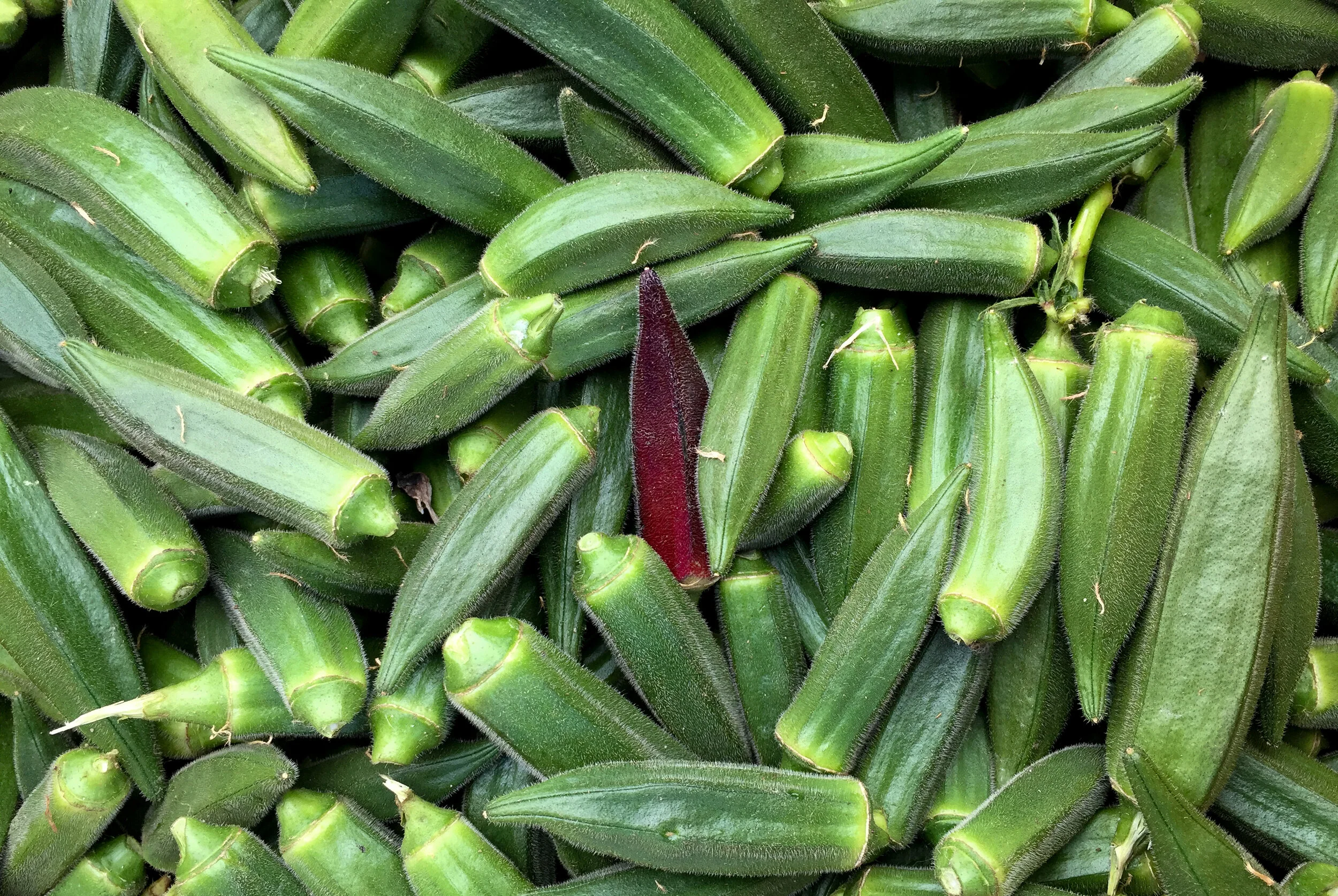Featured Ingredient: Okra
Okra is a southern staple that has, against all odds, taken root on farms here in Washington. Native to tropical climates in the Eastern Hemisphere, Okra is thought to have originated in Ethiopia and was possibly first cultivated by the Ancient Egyptians in the 12th century B.C. From there, it spread to North Africa and the Middle East. Okra is a member of the mallow family, (Malvaceae), a prestigious group that includes the likes of cotton, hibiscus, and cacao.
While we’re sure glad okra has made it way into the American palette, its journey to the U.S. speaks to this country’s history of violence and subjugation. Okra was a staple of American slaves, a crop grown in their personal gardens that sustained them when rations were intentionally limited by slave masters. It is thought that people taken from West Africa in the 1500’s brought seeds from their communities with them to the U.S., including Okra and rice. Laura Paige Penkert examines the history of okra and its roots in American slavery in an article for The Friedman Sprout,
”Food justice activist Leah Penniman describes her ancestors gathering millet, black rice, okra, and other seeds and braiding them into their children’s hair to provide them with an inheritance in an unknown land.”
The full article by Penkert is worth the read, and you can check it out here.
In lieu of real coffee, African slaves toasted okra seeds as a stand in, though the caffeine-less substitute hardly measured up to the real thing. During the American Civil War blockades of the 1860s, southerners copied their example when real coffee was unavailable. More delicious methods of cooking okra slowly made their way into southern diets, and much of what we consider “southern soul food” in the U.S. today has origins in West Africa. This includes gumbo, which is derived from West African soups and stews that use the mucilaginous goop in okra pods as a roux. As okra’s popularity grew in the U.S., new recipes and cooking methods became popular, like fried okra and stewed okra with tomatoes, which are considered staples of Southern African American cuisine.
Learning the history of the ingredients and dishes you love is always worthwhile. It is a way to honor and acknowledge the cultures and peoples that developed the cuisine, and connects you more deeply to your food. Market Farmers are often familiar with the history of their crops, and are always happy to share recipes and information if you ask!

